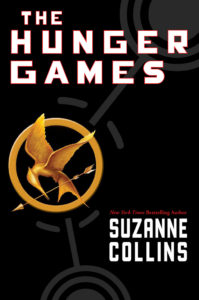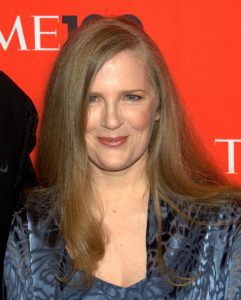Hello again, class.
The youngest book on the 50 Books to Read Before You Die list is Harry Potter and the Deathly Hallows, published in the summer of 2007. By that time the series was 10 years old, and it had already established a lasting impact on the world. The 50-books list, made in 2011, could see that impact and the quality of the novels, so the series was made required reading for everyone.
 The Hunger Games Trilogy didn’t get the same advantage—the first installment was published in 2008, and the final installment in 2010, a year before the official list was released. If the list had been made later, I honestly believe this series would have been included. But, as always, let’s talk about why.
The Hunger Games Trilogy didn’t get the same advantage—the first installment was published in 2008, and the final installment in 2010, a year before the official list was released. If the list had been made later, I honestly believe this series would have been included. But, as always, let’s talk about why.
The story is popular enough by now, but for those who need the cliff notes: the main character, Katniss Everdeen, is a teenager swept up in the political slaughter of children disguised as an annual “game,” where 24 children are forced into an arena to fight against each other for their lives. The personal aspects of Katniss’s life get swept up, too; as soon as children are chosen for this sentence, they live entirely in the spotlight. From the opening chapters of the first novel, Katniss is being filmed and interviewed, giving the public every moment of the emotional roller coaster she’s experiencing.
That includes the intricate difficulties of the family she’s supporting, as well as the love triangle she so desperately wants no part of. And suddenly, her attitude, fashion sense, love life, and ability to survive become the absurd center of attention of an entire nation of oppressed people. How she reacts to her situation is a part of a larger political game she’s also forced to play, which is even more difficult to survive.
Katniss’s journey is only partially about her survival, and what she sacrifices to have it (her humanity, her future, her family). On that point, it’s a dystopian sci-fi action-thriller—interesting futuristic technology and fight sequences that rival war movies. I’d call it entertaining if it wasn’t so brutal, but we are talking about children fighting for their lives.

Suzanne Collins, author of The Hunger Games trilogy
And that’s the problem—the teenagers killing each other is broadcast to the whole corrupt nation as entertainment. The Hunger Games trilogy is a scathing criticism of our society privileging and promoting violence as entertainment, with upfront proof that children always pay the price. The society Katniss lives in has such a skewed perspective that it doesn’t see violence and death for what it is: raw, painful, and terrifying. The same could be said of our world, with action movies and violent news stories filling up every void in our daily lives.
The series does have a lot in common with 1984—another reason it might not have made the list, being too similar to an already featured classic. But the fact that The Hunger Games is the teen-fiction version of a great sci-fi classic means it’s even more worthy of being on the list; it’s such a layered and accessible view of societal dangers that it should be required reading for everyone.
It’s especially worth mentioning that The Hunger Games has a strong female lead in an action-based book series. Even at the time of the first book’s release (and even today) that can be hard to find. I definitely believe our society privileges men in stories like this, and it’s good to see a figure like Katniss Everdeen flaunt our societal expectations. But Katniss isn’t a through-and-through warrior either—she’s a teenager with a very messed up life, making mistakes and not knowing who to trust in a world of liars and politicians. Many current novels still fail to treat female characters as well as this, so author Suzanne Collins deserves props.
As I continue to read Jane Eyre, treatment of female characters is on the front of my mind. I’m really impressed with Jane as a character so far—but I’ll update you next week, students.
Enjoy your week!
Prof. Jeffrey
Recent Comments